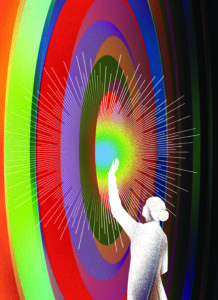Get the worm
Night owls more prone to mental health issues than early birds

Night owls have higher rates of psychological disorders than morning larks, according to a study by Stanford Medicine researchers, who found that people with a natural inclination to stay awake until the wee hours are at greater risk of poor mental health.
In a survey of nearly 75,000 adults, researchers compared the participants’ preferred sleep timing, known as chronotype, with their sleep behavior. They found that, regardless of one’s preferred bedtime, everyone benefits from turning in early. Morning larks and night owls alike tended to have higher rates of mental and behavioral disorders if they stayed up late.
The findings weren’t expected. “There is a bunch of data out there indicating that living aligned to your chronotype is very important,” said senior author Jamie Zeitzer, PhD, professor of psychiatry and behavioral sciences. “That was our expectation.”
The study, published in May in Psychiatry Research, recommends lights out by 1 a.m.
Among the 73,888 participants, 19,065 self-identified as morning types, 6,844 as evening types and 47,979 as somewhere in the middle.
Morning types and evening types who went to sleep late had higher rates of mental health disorders, including depression and anxiety.
Night owls being true to their chronotype were 20% to 40% more likely to be diagnosed with a mental health disorder, compared with night owls on early or intermediate sleep schedules.
Read the full story here.

